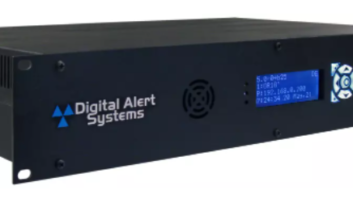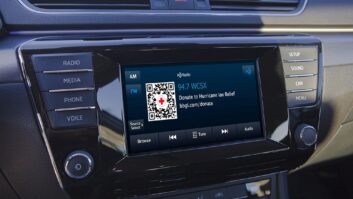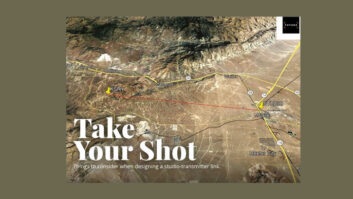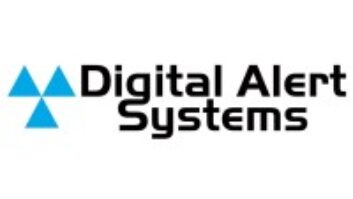At first glance, several things jump out at us in the text of the just-released IBOC rules, which the commissioners had adopted in March. Several topics in this 74-page document have not been debated by the industry since Ibiquity was still USA Digital Radio.
AM nighttime operation: “On balance, we find the benefits of full-time IBOC operation by AM stations outweigh the slightly increased risk of interference,” the commission states in the text. Studies conducted by Ibiquity and analyzed by NAB indicate the greatest potential for interference is at the fringe of coverage areas, “primarily where substantial interference from analog” already exists.
As RW has reported, those AMs already transmitting in IBOC during the day can go on at night without additional FCC notification. The FCC will presume notifications it receives from AMs after these changes take effect will be for both day and night IBOC operation.
No mandate: The FCC said it would not establish a deadline for stations to begin conversions to digital.
Extended hybrid mode: It adds up to 50 kbps of data carrying capacity; the commission said it “holds great promise.” The agency is confident its staff can work out any interference issues with this operation on a case-by-case basis.
Rules governing an all-digital mode: It’s too soon in the conversion to consider this, the FCC said.
Multicasting: Stations can multicast without “additional” FCC approval. As AM IBOC operations progress, Ibiquity intends to introduce this concept for AM stations.
Time brokering: It will be permitted on digital channels.
LPFM: The FCC said if an LPFM is technically capable of transmitting a digital signal, there should be no “regulatory impediment” preventing its adoption of IBOC. Ibiquity says IBOC transmission equipment can operate at the 100-watt power level an LPFM needs, but a 10-watter may be out of luck as such a low power level may make digital broadcasts “unfeasible,” according to the FCC’s text.
Digital rights management: The commission had asked whether the transmission of free non-encrypted digital signals could lead to the “indiscriminate recording and Internet distribution” of copyrighted music and how this could be prevented. It stated that interested parties are seeking a solution and deferred action on this issue.
The changes take effect 30 days after publication in the Federal Register.
This is just a fraction of the details in the FCC’s document this week. Radio World will have coverage of topics including the ongoing public service requirements debate in upcoming issues.












